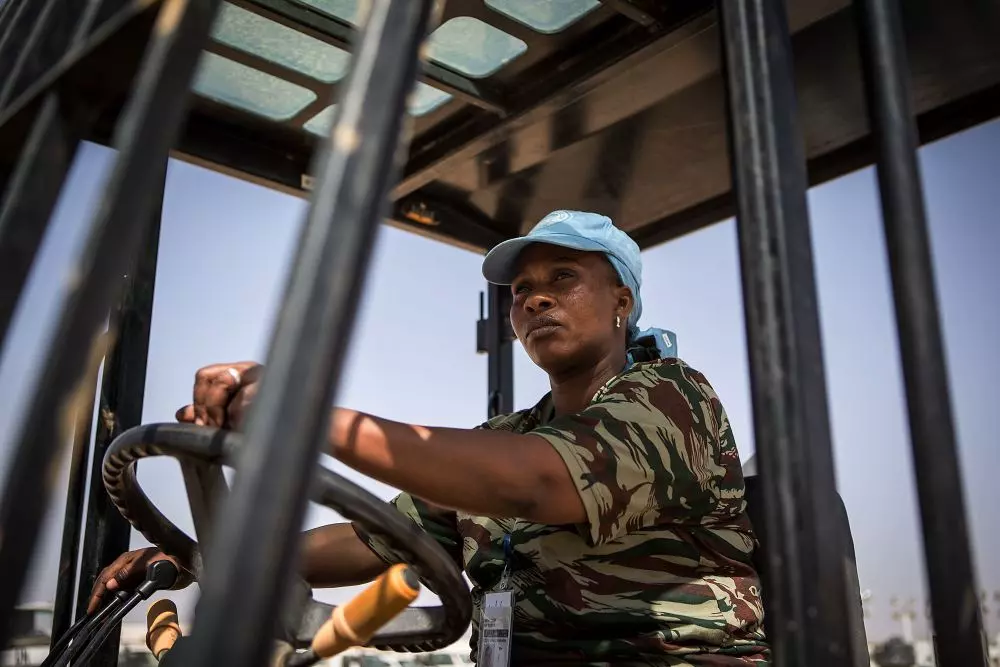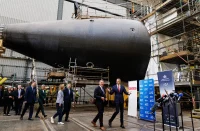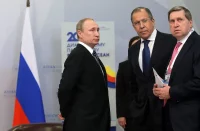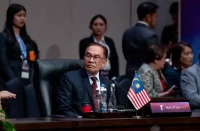African challenges
As of now, many goals of development and integration projects outlined in Africa look like some distant future. There are enough conflicts and tension on the continent, and in some countries national state institutions are still being formed and elite groups are still struggling for power, while a large part of the population lives in poverty.
Ethiopia and Eritrea, Somalia, the Great Lakes region, Sudan, Eastern Congo, all conflict territories without state governance become vulnerable to the intervention of foreign private actors. They take advantage of the situation; they benefit while Africa gets nothing but trouble. There is something in the air, something that has already been discussed at many conferences and unofficially called “neo-colonialism 5.0”.
After the Second World War, military and mercenary personnel, national armies and guerrilla organizations headed to Africa looking for a job. They formed their “internationale” by working under any flag and in non-public projects like Françafrique, France’s system of informal patronage over its former colonies and also, to a lesser extent, over Belgian and Spanish domains. This is where the largest mercenary market was formed.
The fragility of government structures allows private military initiatives to expand their business. Besides, PMCs are often used in the internal power struggle. And they are being funded from the budget.
Another ongoing challenge for the continent is the ease with which insurgents and militants cross borders to retreat and disperse into the territory of a neighboring state, so as to avoid any retaliation on the part of government forces. This is known as the phenomenon of conflict spillover into neighboring countries.
An example of it can be seen in the armed clashes in the Mano River areas, where fighters “spilled over” between Sierra Leone, Liberia, Guinea-Bissau, and Côte d’Ivoire. Such phenomena force governments to develop mechanisms that protect their sovereignty using the structures of the African Union. Indeed, it is within its power to use military force in the territories of independent states if their governments request such assistance.
The mechanism came about as a reaction to the rule of Idi Amin in Uganda and Jean-Bedel Bokassa in the Central African Republic in the 1970s, as well as the Rwandan genocide in 1994 and Ethiopia’s war with Eritrea in the late 1990s.

African Union troops carried out several operations under Article 4 of the Constitutive Act — missions in Burundi, the Sudan, Darfur, Somalia — but they were not particularly successful. Historically, African countries avoid interfering in each other’s internal affairs. Each operation of this nature involves a series of negotiations and disputes within both the African Union and regional groups. And it affects the stability of their relationship.
Apart from violence and military conflict issues, there are other unique characteristics of the continent. It is wrong to imagine Africa in terms of macro-statistical indicators, such as GDP growth, alone. There are many factors in Africa that influence such figures. One must know them all. Real GDP growth does not bring about an increase in the countries’ welfare because it is accompanied by significant pressure on the ecosystem, population growth, worsening of living standards due to the dilapidation of infrastructure and other factors.
Who is in charge in Africa
The issue of leadership among African states is a separate topic. Nobody is particularly interested in this role, as no leader is ready to “drag” the entire Africa with them. There are, of course, countries with a lot of influence. This includes Morocco, which has a rather strong internal governance, Botswana, Tanzania, Senegal. There are also other regional leaders who can be called gravity points, points of crystallization. At the same time, none of them are ready to voice Africa’s common interests.
The Republic of South Africa, which largely sets the tone for the African Union, is riddled with tensions. The government is forced to maneuver between different warring political groups.
South Africa has no weight in the development of a pan-African ideology. Besides, there is no Pan-African ideology whatsoever.
South Africa’s partial leadership hinges solely on its economic clout, but other countries have it as well. When it comes to economic issues, African countries often stand for themselves.
Pretoria would be willing to develop relations with China and Russia and is also interested in the BRICS projects, but South Africa still has very close relations Western countries.
Furthermore, South Africa is not fully associated by African countries with Africa. Some believe that it is a Trojan horse for the continent. This distrust stems from history, from European rule in South Africa and the decades-long apartheid regime.
And regional leaders such as Morocco, Algeria, Egypt, Nigeria, Rwanda, where economies are fairly strong or governments are stable and have trained armies, prefer to build regional leadership. And they are in no hurry to take on the unbearable burden of overseeing pan-African wellbeing.
Africa and the outside world
The emergence of African statehood is characterized by a pulse of successes and failures. We can see the emergence and collapse of state institutions in a short time-frame. Therefore, African elites have real and ongoing experience of political struggle and have been well prepared for such challenges, in part while studying at the best universities in the world.
African countries are governed by educated people with a broad skill set. The increasing independence of thought among local elites leads to the emergence of global initiatives and attempts to defend their interests in the world market.
Particularly, the peace initiative to regulate the Ukrainian conflict, proposed by South Africa and six other African states, includes a clause on the freedom of grain shipping across the Black Sea. Africa suffers the most from the disruption of logistics chains, sanctions, and global conflicts as it lacks food, clean water, and medicines.
At the same time, Africa believes that death is better than the loss of sovereignty. This is the main tool for protecting national identity and culture.
It is not surprising that it is Russia that African countries associate with the idea of defending sovereignty. Russia has no colonial past. Of course, the French, the British and the Germans conduct now a much more careful policy towards the Black Continent than they did thirty years ago, but African countries are still determined to find alternative ways to interact with external forces. With China and Russia in particular. First, they want to diversify their foreign policy contacts. Secondly, they have a good grasp on the underlying goals of cooperation. And they understand who needs only resources from them, and who pursues other goals, like mutual strengthening of authority.
Experts note the peculiarities of the African perception of international interaction, which include an aversion to arrogance. Any form of arrogance or condescension, even a patronizing tone, is instantly recognized, which leads to colder relationships.
Western countries keep forcing their agenda on Africa; they interfere in traditional ways of life and dictate a liberal format of relations. Africans, on the other hand, actively defend their rights to cultural autonomy. That is why they prefer to do business with Russia, China, Brazil and are overall interested in broadening ties with the BRICS.














Comments